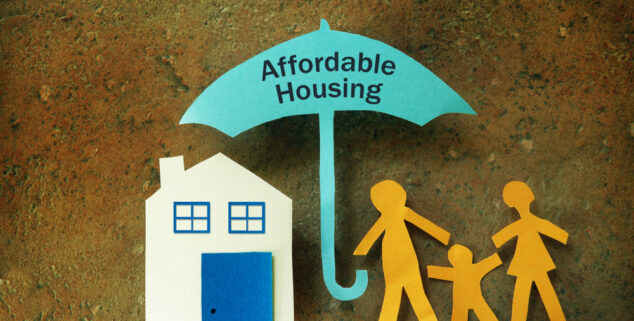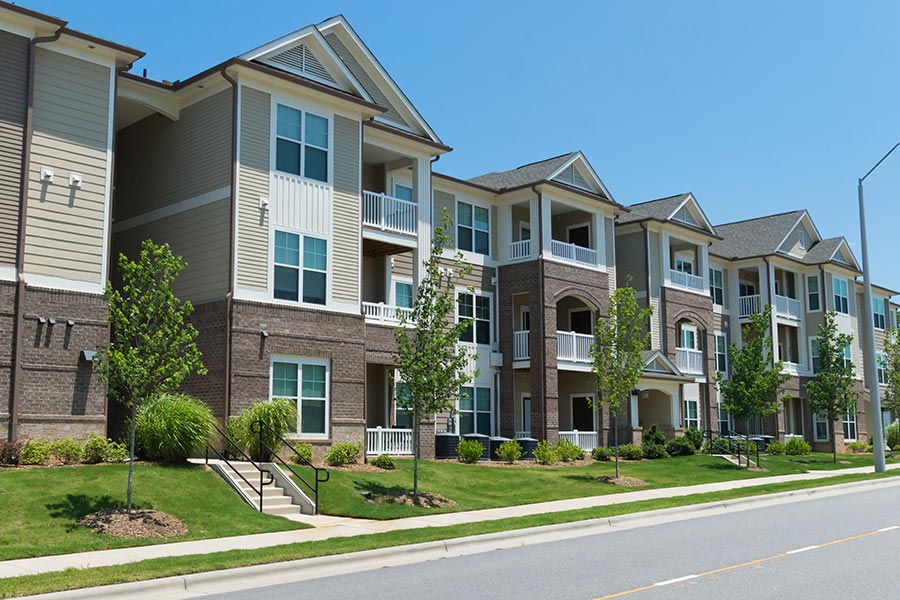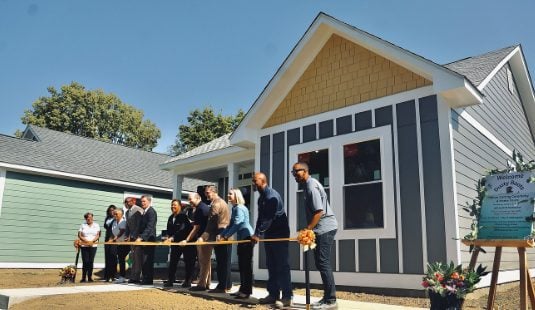Economical Homeownership Options for First-Time Homebuyers
As the housing market remains to progress, first-time buyers face unique difficulties in protecting inexpensive homeownership choices. Various resources, consisting of government help programs, low-down-payment home loans, and targeted grants, have actually arised to minimize monetary pressures. These initiatives not just facilitate homeownership however likewise foster community stability and financial growth. However, navigating these choices can be complex, and understanding which paths are most helpful needs careful consideration. What approaches can prospective property owners utilize to maximize their opportunities in this landscape?
Government Aid Programs
Entitlement program programs play a vital function in making homeownership achievable for several individuals and families. These programs intend to reduce the economic problem related to buying a home, particularly for new purchasers. By offering economic aid, gives, and tax obligation incentives, federal government initiatives assist bridge the void in between increasing housing costs and the acquiring power of potential house owners.
Various programs are offered at the government, state, and neighborhood levels. The Federal Real Estate Management (FHA) provides insurance policy on finances, permitting lenders to provide a lot more desirable terms, such as reduced down payments and reduced rate of interest rates. Additionally, state and city governments typically have their own efforts, which might consist of deposit assistance programs, homebuyer education courses, and beneficial home loan terms.
These programs are developed to deal with the unique challenges encountered by reduced- to moderate-income households, including limited cost savings and credit report history. By promoting an environment where homeownership is much more easily accessible, entitlement program programs not only sustain private goals but also add to neighborhood stability and economic growth. Understanding and making use of these resources can considerably enhance the prospects of effective homeownership.
Low-Down-Payment Home Loans
For many hopeful home owners, low-down-payment home mortgages offer a sensible path to homeownership, especially in today's challenging real estate market. These home loan alternatives usually require down settlements ranging from 3% to 5%, making it less complicated for novice customers to enter the market without the problem of conserving for a significant down payment.
Different lenders provide low-down-payment programs, including standard fundings backed by Fannie Mae and Freddie Mac, as well as government-backed options like FHA finances. These home mortgages are developed to suit individuals with limited cost savings while still supplying competitive rate of interest. Significantly, they permit purchasers to retain more cash money for various other important expenses, such as moving expenses, home inspections, and prospective restorations.
However, possible homeowners ought to be conscious of the trade-offs connected with low-down-payment home loans. A smaller sized down payment may result in higher regular monthly settlements and the need of exclusive home mortgage insurance (PMI), which secures lending institutions in instance of default. It is critical for new customers to carry out complete study and consult with mortgage professionals, ensuring they pick a low-down-payment option that aligns with their lasting economic goals.
First-Time Homebuyer Grants
Several newbie homebuyers locate that grants can significantly alleviate the monetary burden of buying a home, complementing low-down-payment home mortgage options. These grants, frequently given by state and city governments or non-profit companies, offer monetary aid that does not require settlement, making them an appealing alternative for those entering the real estate market.
Eligibility for novice homebuyer gives usually relies on earnings, credit reliability, read the full info here and the purchase cost of the home. Several programs are designed to assist reduced- to moderate-income family members, guaranteeing that assistance gets to those who require it most. The application process typically entails documentation of monetary standing, buyer education and learning programs, and in some cases also a dedication to stay in the home for a specific duration.
The quantity of aid varies extensively, with some grants offering a number of thousand dollars to assist cover shutting costs or deposits. Looking into available grants in your area is crucial, as programs frequently alter and may have particular demands. By leveraging these funds, novice homebuyers can make homeownership much more easily accessible, inevitably attaining their dream of owning a home while alleviating the preliminary monetary stress.
Innovative Area Efforts
Innovative neighborhood initiatives are playing a vital function in broadening budget-friendly homeownership choices for locals. These initiatives frequently include collective initiatives between city governments, charitable companies, and economic sector stakeholders to produce sustainable real estate options customized to area requirements.
One significant technique is the establishment of community land trusts (CLTs), which allow residents to acquire homes while the land stays had by the trust. This model helps keep cost with time and protects against speculative cost increases. In addition, CLTs usually supply educational sources and assistance services to empower newbie property buyers.
An additional efficient initiative is the growth of mixed-income real estate projects, which mix cost effective units with market-rate homes. This approach promotes inclusive neighborhoods and decreases the preconception frequently linked with low-income housing. Regional federal governments are progressively supporting zoning reforms to help with the building and construction of accessory dwelling systems (ADUs), which can give extra rental income for house owners while raising housing availability.

Tips for Budgeting and Saving

Next, develop a devoted interest-bearing account particularly for your future home acquisition. Purpose to save a portion of your earnings continually, ideally 20% or even more, to develop a considerable down settlement. Make use of automation tools, such as straight deposit or automated transfers, to make conserving much easier and a lot more constant.
Additionally, think about embracing the 50/30/20 policy: designate 50% of your earnings to demands, 30% to wants, and 20% to savings and debt payment - Affordable Homeownership. This approach promotes balanced financial health

Verdict
In recap, affordable homeownership options for novice buyers incorporate numerous sources such as federal government aid programs, low-down-payment home loans, and gives. By leveraging these economic devices, people can browse click this link the complexities of homeownership, eventually contributing to a much more equitable housing landscape.
As the housing market continues to develop, new buyers face distinct challenges in from this source securing economical homeownership alternatives. By fostering an environment where homeownership is extra accessible, government aid programs not just support individual desires however also add to neighborhood stability and financial development. By leveraging these monetary resources, new buyers can make homeownership extra easily accessible, inevitably attaining their desire of having a home while mitigating the initial economic stress.
In summary, cost effective homeownership choices for new buyers incorporate various sources such as government aid programs, low-down-payment home mortgages, and grants. By leveraging these financial tools, people can browse the intricacies of homeownership, eventually contributing to a more fair real estate landscape.